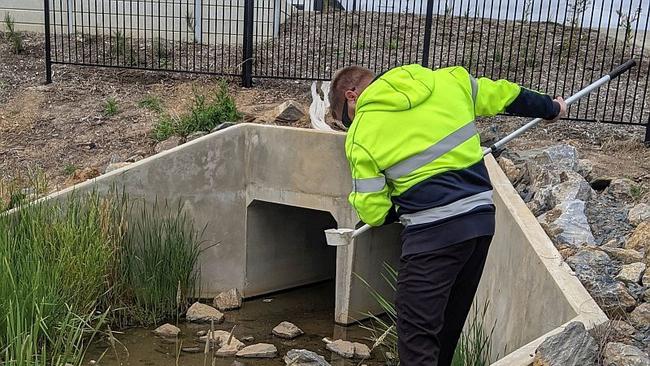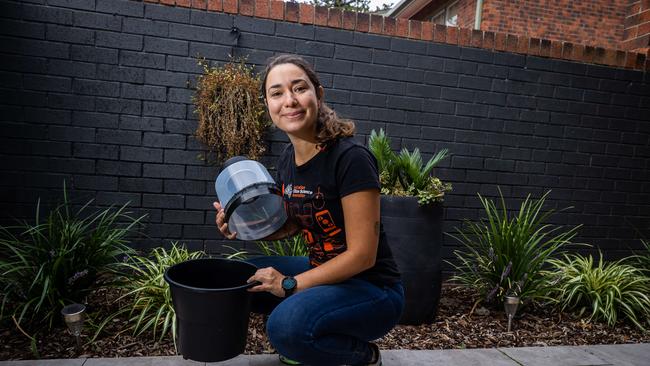Japanese encephalitis virus spread through SA from Riverland to city studied by SA Health
Health authorities fear Japanese encephalitis virus has spread to Adelaide suburbs as the bad-guy mosquitoes have been trapped here.
SA News
Don't miss out on the headlines from SA News. Followed categories will be added to My News.
Adelaide people are being warned to protect themselves against the potentially fatal or debilitating disease Japanese encephalitis, because the type of mosquito known to transmit the virus (culex annulirostris) has been found across the metropolitan area.
For the first time, Japanese encephalitis is spreading throughout South Australia from the eastern states, carried by waterbirds such as heron and egrets.
Of the nation’s 32 human cases, SA has three laboratory confirmed and five probable cases, including one death. Two people remain in hospital.
Most reported they had travelled to the Riverland, but disturbingly, one from the Adelaide Hills had not.
The virus has also been detected in four of the state’s 260 commercial piggeries, as telltale weak or stillborn piglets raise the alarm – but food safety is not a concern.
Piggery workers at those sites, within Loxton Waikerie, Murray Bridge, and Coorong councils, along with surveillance workers and local vets, are being vaccinated. But vulnerable people living nearby are not being notified, as the vaccine is in short supply.

The state government, working with the councils, is scrambling to trap mosquitoes (fortnightly) along the Murray River – counting and identifying species, before grinding them up for laboratory analysis interstate – bleeding “sentinel chickens” weekly and putting out extra traps at piggeries.
But so far, deputy chief public health officer Dr Chris Lease says, they haven’t detected any JEV that way.
“The concern that we have, which we will need to understand over time, is whether Japanese encephalitis becomes endemic, as it is in some regions, or if this is an incursion that might peter out,” Dr Lease said.
“That’s something that plays on our minds … it has been predicted for a long time that this is one of the things we’d see (with climate change), my real concern is seeing it happen so quickly.”
The state’s mosquito-borne disease threat level was raised to “high” on March 7 after the disease was declared a communicable disease incident of national significance.
Most people infected with the virus are asymptomatic or develop a mild febrile illness. A small proportion develop encephalitis, inflammation and swelling of the brain, which may be fatal or cause long-term neurological damage. Symptoms include confusion, headaches, neck stiffness, tremors, drowsiness and seizures.
Wetter conditions over summer encouraged mosquito breeding, raising the risk of exposure to several mosquito-borne diseases.
There have been 137 cases of Ross River virus infection notified across South Australia this year compared with 56 cases at the same time last year.

UniSA PhD candidate Larissa Braz Sousa is wrapping up a six-week nationwide trapping and identification project called Mozzie Monitors, carried out with more than 100 volunteers.
“The first step to control any mosquito-borne disease is to control the vector population, the mosquito population,” she said.
“Citizen science projects can help while also making people more aware and more empowered to play their role in avoiding mosquitoes.”
For more information on how to prevent mosquito bites, visit www.sahealth.sa.gov.au/fightthebite.
For more information about JEV in pigs and horses, visit pir.sa.gov.au/je-virus





